
Tel: 020 7620 1818 email: cookandbutler@btconnect.com
The Worshipful Company of World Traders
www.world-traders.org
Masters & Clerks' Luncheon
May 2019, Information Technologists Hall, London
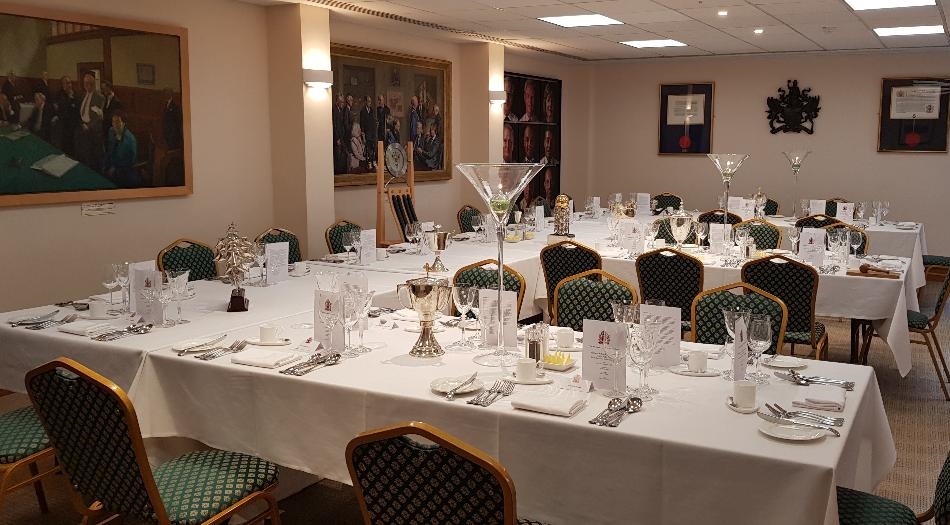
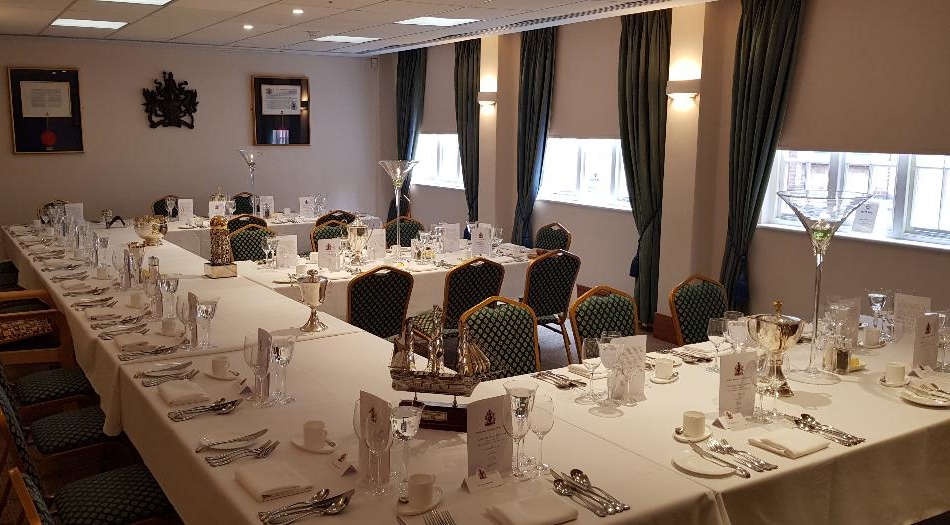
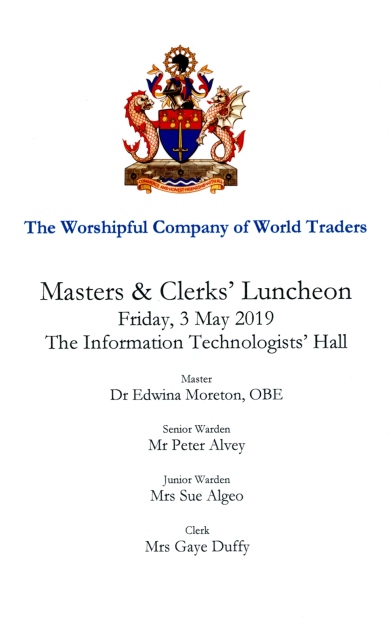
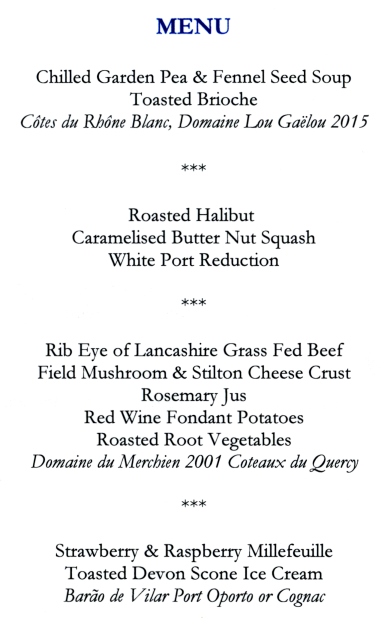

Installation
Dinner
October 2018, Stationers Hall, London
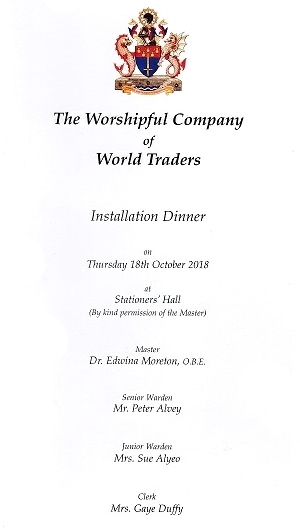
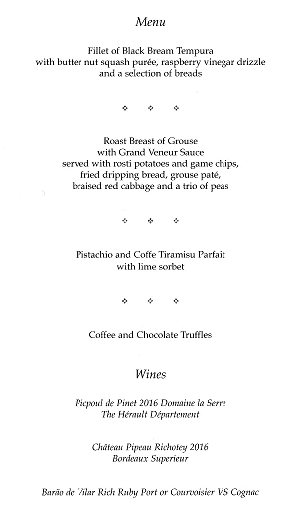

Summer Luncheon
June 2018, Trinity House, London
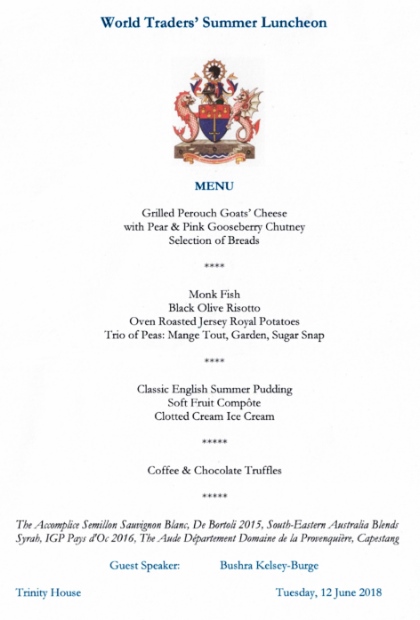

Election Dinner
April 2018, Carpenters' Hall, London
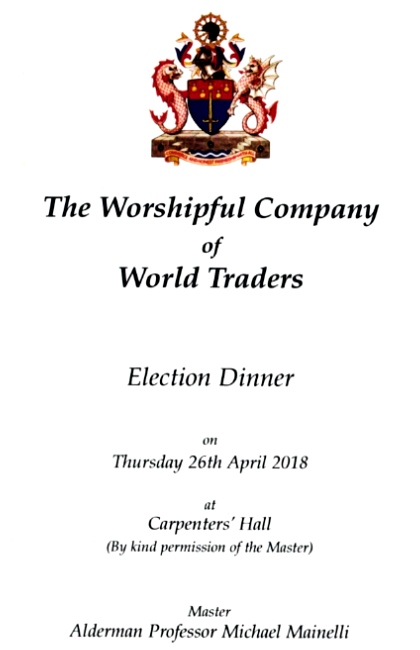
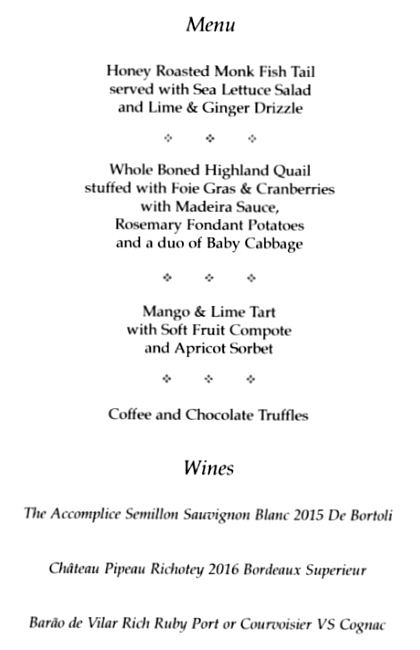

Modern Livery Companies' Autumn Dinner
September 2017, The Wax Chandlers' Hall, London
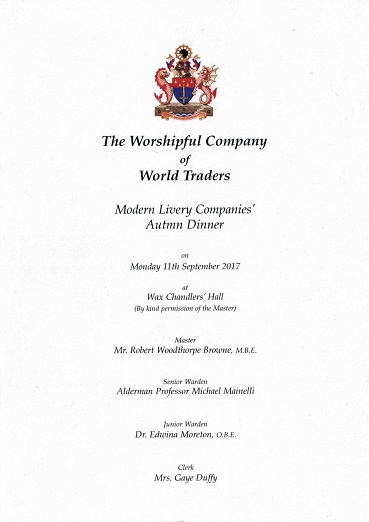
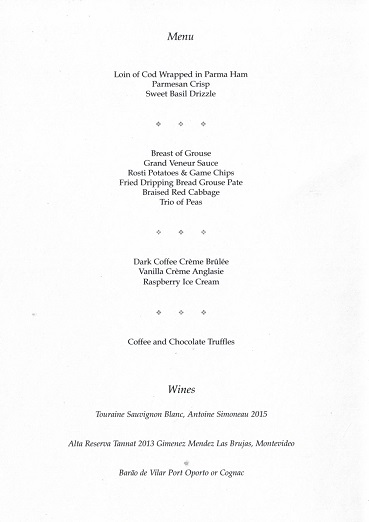
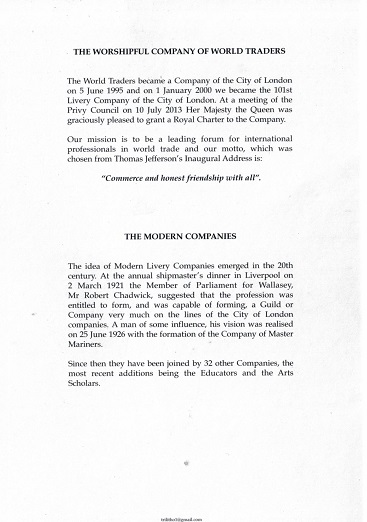

Tacitus Lecture Dinner
February 2015, Brewers' Hall, London
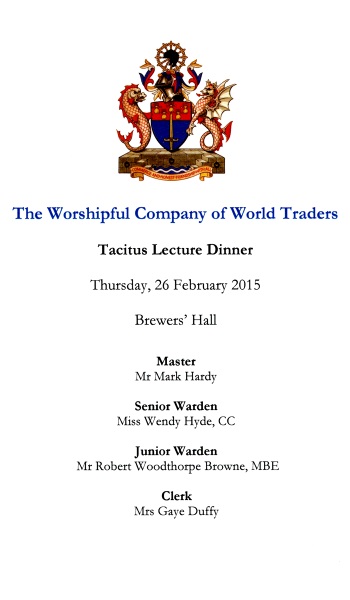
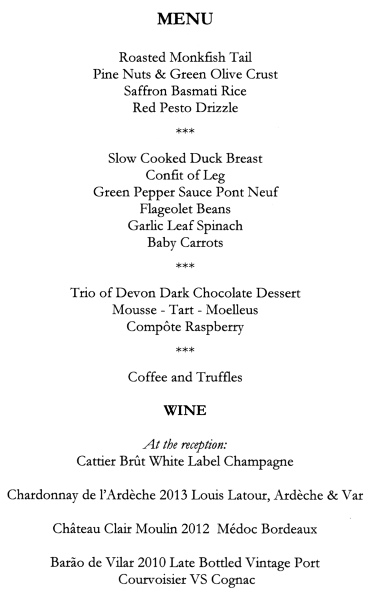

Tacitus, Roman historian (Cornelius Tacitus), c.AD 55 — c.AD 117
Little is known for certain of his life. He was a
friend of Pliny the Younger and married the daughter of Gnaeus Julius
Agricola. In AD97 he was appointed substitute consul under Nerva, and
later he was proconsul of Asia.
The first of his works was the Dialogus [dialogue], a discussion of
oratory in the style of Cicero, demonstrating to some degree why Tacitus
was celebrated as an eloquent speaker; this work was long disputed, but
his authorship is now generally accepted. Tacitus then wrote a biography
of Agricola, expressing his admiration for his father-in-law as a good
and able man.
His small treatise De Origine et situ Germanorum [concerning the origin
and location of the Germans] supplies (along with the earlier account of
Julius Caesar) the principal written material on the Germanic tribes.
Archaeology bears out the accuracy of Tacitus, but the work is not
objective; it is a picture of the simple Germans glorified by comparison
with the corruption and luxurious immorality of the Romans.
This moral purpose and severe criticism of contemporary Rome, fallen
from the vigour of the old republic, also underlies his two long works,
commonly called in English the Histories (of which four books and part
of a fifth survive) and the Annals (of which twelve books - Books I-VI,
XI-XVI — survive).
The extant books of the Histories cover only the reign of Galba (AD
68-69) and the beginning (to AD70) of the reign of Vespasian but give a
thorough view of Roman life — persons, places and events. The surviving
books of the Annals tell of the reign of Tiberius, of the last years of
Claudius, and of the first years of Nero. The account contains incisive
character sketches, ironic passages, and eloquent moral conclusions. The
declamatory writing of the Dialogus is replaced in the historical works
by a polished and highly individual style, a wide range of vocabulary,
and an intricate and startling syntax.
![]()